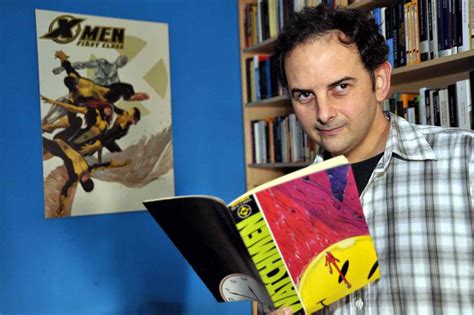A Quote by Tess Gerritsen
It's what all writers dream of, that our work finds a measure of immortality that long outlives the words of any critic.
Related Quotes
At best, the relationship between drama critic and playwright is a pretty twiggy affair. When I'm asked whom I write for, after the obligatory, I write only for myself, I realize that I have an imaginary circle of peers - writers and respected or savvy theatre folk, some dramatic writers and some not, some living, some long gone. . . . Often a writer is aware as he works that a certain critic is going to hate this one. . . . You don't let what a critic might say worry you or alter your work; it might even add a spark to the gleeful process of creation.
You find very few critics who approach their job with a combination of information and enthusiasm and humility that makes for a good critic. But there is nothing wrong with critics as long as people don't pay any attention to them. I mean, nobody wants to put them out of a job and a good critic is not necessarily a dead critic. It's just that people take what a critic says as a fact rather than an opinion, and you have to know whether the opinion of the critic is informed or uninformed, intelligent of stupid -- but most people don't take the trouble.
It wouldn't take us long to discover the substance of that dream. It is found in those majestic words of the Declaration of Independence, words lifted to cosmic proportions: We hold these truths to be self-evident, that all men are created equal, that they are endowed by God, Creator, with certain inalienable Rights, that among these are Life, Liberty, and the pursuit of Happiness. This is a dream. It's a great dream.
Racism itself is difficult to measure. We can measure hate crimes - which are absolutely an indicator. We can measure reports of discrimination. We can measure the number of times hateful words are being used across the Internet. Those things all help us measure racism, but it can sometimes be nebulous.
That historians should give their own country a break, I grant you; but not so as to state things contrary to fact. For there are plenty of mistakes made by writers out of ignorance, and which any man finds it difficult to avoid. But if we knowingly write what is false, whether for the sake of our country or our friends or just to be pleasant, what difference is there between us and hack writers? Readers should be very attentive to and critical of historians, and they in turn should be constantly on their guard.






































